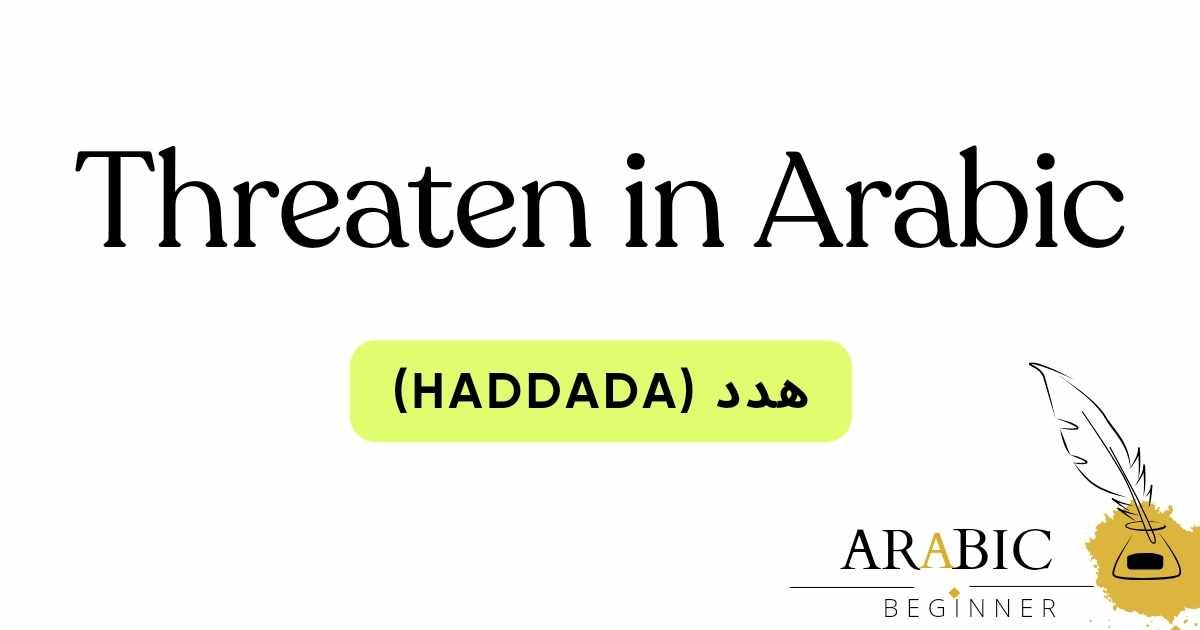The Arabic verb for “threaten” is هدد (haddada). Below, you’ll find its forms in the past, present, command, and as a noun, along with example sentences and their transliterations:
Past (He threatened):
- هدد
- Transliteration: haddada
- Sentence: هو هدد صديقه بالمغادرة.
- Sentence Transliteration: Huwa haddada sadiqahu bil-mughadara.
- Translation: He threatened his friend with leaving.
Present (He threatens):
- يهدد
- Transliteration: yuhaddid
- Sentence: هو يهدد باتخاذ إجراءات صارمة.
- Sentence Transliteration: Huwa yuhaddid bi-ittikhadh ijarat sarmah.
- Translation: He threatens to take strict measures.
Command (Threaten!):
- هدد
- Transliteration: haddid
- Sentence: هدد إذا لم يعطوك حقك.
- Sentence Transliteration: Haddid idha lam yu’atooka haqqak.
- Translation: Threaten if they do not give you your right.
Noun (Threat):
- تهديد
- Transliteration: tahdid
- Sentence: التهديد بالعقوبة لا يجدي نفعًا.
- Sentence Transliteration: At-tahdid bil-‘uquba la yajdi naf’an.
- Translation: The threat of punishment is not effective.
These examples should give you a good understanding of how to use the verb “to threaten” in various contexts in Arabic. Here is a youtube video so you can pronounce it well. (Video not mine).

